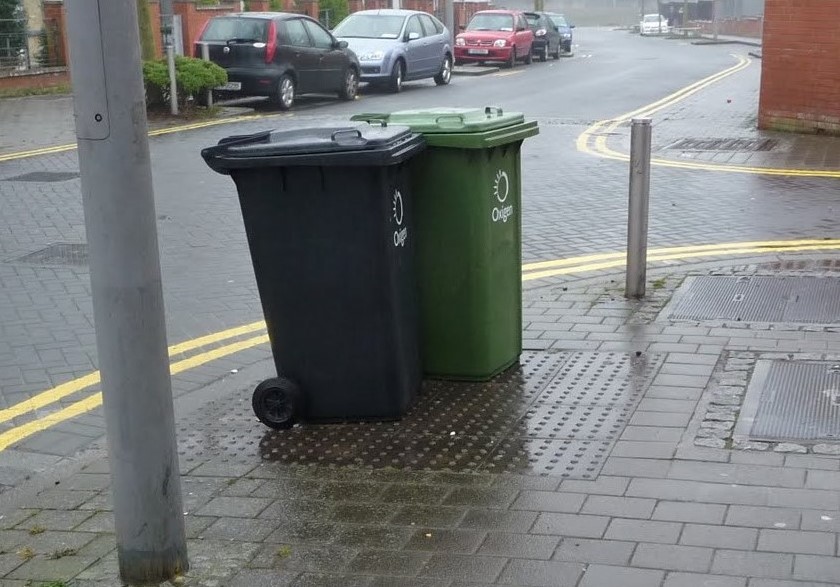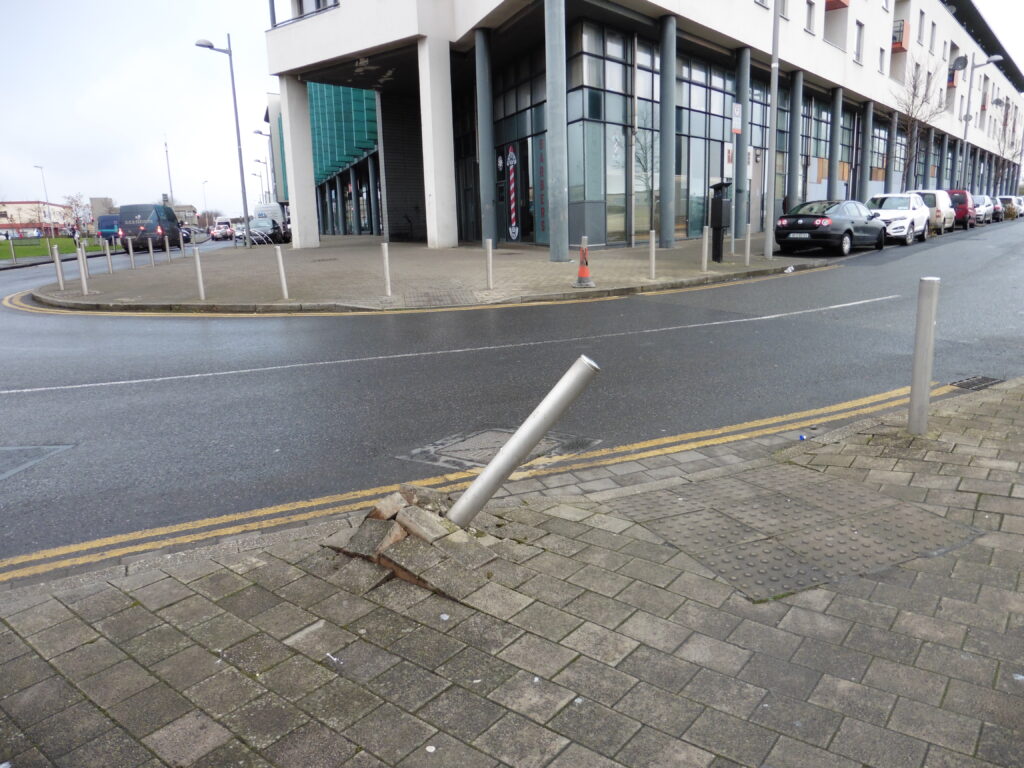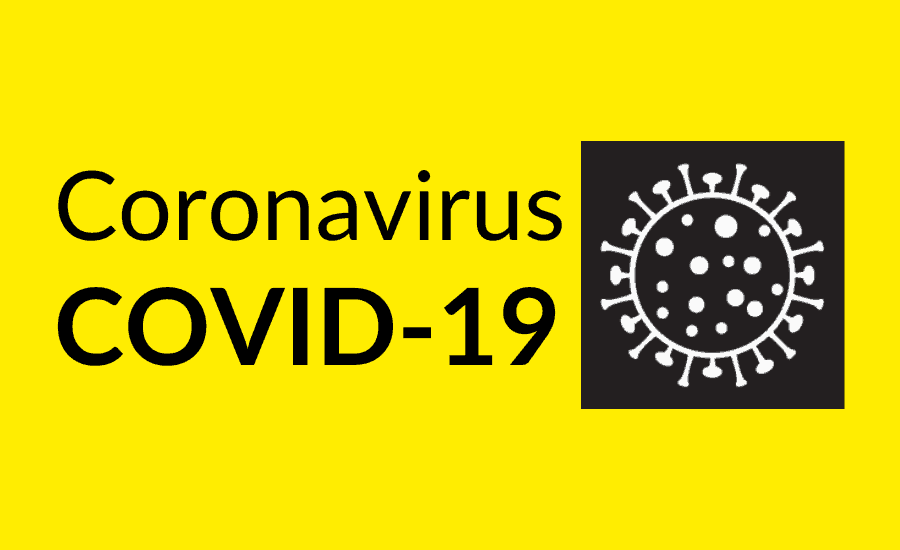BADIG Campaign: Remove Obstacles
For people with disability, moving around an area, for example to visit local shops or a place of work, presents more of a challenge than for other people.
Wheelchair users must plan their route around known fixed obstacles which may restrict their passage, for example post boxes. When crossing a road, they rely on dipped paving.
People who are visually impaired often use a ‘mind map’ of their regular route, using tactile landmarks as a guide. They find it safer to cross roads in places marked by dipped and tactile paving. Unexpected objects placed on pavements and pedestrian crossing places, which most people can negotiate without difficulty, pose a major challenge for people with disability. Similarly, damaged street furniture or posts can cause difficulties. At best, these obstacles slow down progress; at worst, they can put disabled people in danger, for example by forcing them to use a road to navigate around the obstacle.
We do not believe that anyone sets out to cause problems for other people.
Objects such as bins, temporary advertising boards, etc., are placed in spaces on pavements that are convenient. But they may represent a serious obstacle – not just for people with disability but for mothers with pushchairs and the elderly or infirm.
BADIG campaigns to raise awareness of this important issue, for example by encouraging people:
When putting anything on a pavement, to place it off the pedestrian passageway and where it will not reduce or impede progress by wheelchair users, etc.
To place bins with care and consideration and remove them as soon as they are emptied.
To avoid placing any objects on pedestrian crossing areas or dipped paving.
We also make representations on the placing of pedestrian crossings and dipped, tactile paving, and on change of use of pavements.
You can learn more about this in our short video...
New obstacles due to Covid-19
The current COVID-19 pandemic has led to change of use of pavements in many areas, for example to provide additional seating for cafes.
Any change of use introduces potential new obstacles for disabled people. It is particularly important to ensure that such changes are safe and well signposted for for people with disability.



